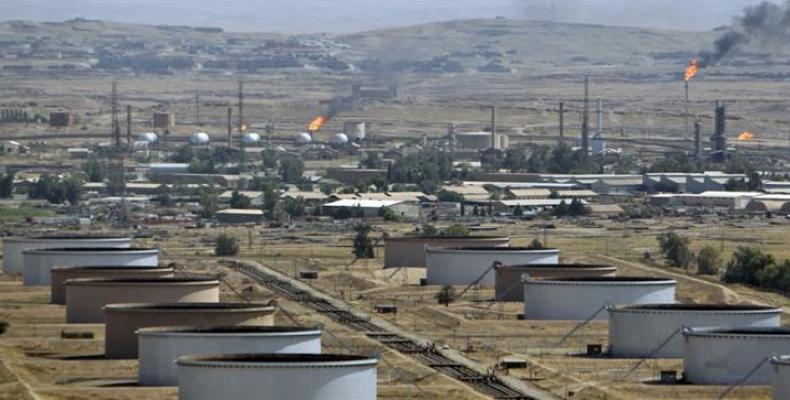Editado por Pavel Jacomino
2018-07-02 16:28:49
Facebook
Pinterest
Telegram
Linkedin
WhatsApp

Washington, July 2 (RHC)-- A senior U.S. State Department official says the countries purchasing oil from Iran should prepare themselves to completely stop the Iranian crude imports by November as Washington reimposes sanctions against Tehran.
The U.S. official, who was speaking on condition of anonymity, told reporters that Washington seeks “to isolate streams of Iranian funding” for the Islamic Republic’s “malign behavior across the region." Asked if Washington is pressuring its allies to slash Iranian oil imports to zero level by November, the official said: "Yes."
The official noted that a U.S. delegation will travel to the Middle East next week to encourage Persian Gulf oil producers to provide enough oil supplies to the global market after Iran’s exports are completely cut out in November.
U.S. President Donald Trump announced on May 8 that Washington was walking away from Iran’s nuclear agreement, known as the Joint Comprehensive Plan of Action (JCPOA), which was reached between Iran and the five permanent members of the UN Security Council -- the United States, Britain, France, Russia and China -- plus Germany. Trump also said he would reinstate U.S. nuclear sanctions on Iran and impose "the highest level" of economic bans on the Islamic Republic.
Under the JCPOA, Iran undertook to put limits on its nuclear program in exchange for the removal of nuclear-related sanctions imposed against Tehran. An absolute majority of world countries consider the US move to be illegal and in violation of the Security Council resolution and international regulations.
The United Nations and the European Union, which had coordinated the talks leading to the agreement, and the rest of the JCPOA’s signatories all warned Washington against taking the move, calling the deal pivotal to regional and international peace and security.
Since the U.S. withdrawal from the nuclear deal, European countries have been scrambling to ensure that Iran gets enough economic benefits to persuade it to stay in the deal. The remaining parties have vowed to stay in the accord.
Iranian Deputy Foreign Minister Abbas Araqchi said last week that the UK, Germany and France as well as the EU have promised to offer a package of practical steps by the end of June that would fulfill Iran’s demands, including on oil sales, payments for its oil and transportation.

